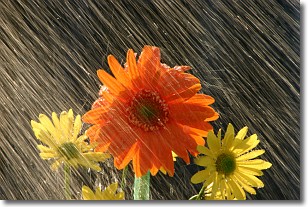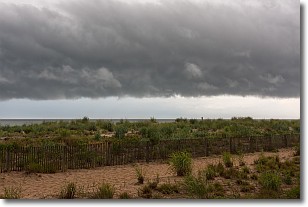Weather Alert in California
Red Flag Warning issued June 20 at 2:14PM PDT until June 22 at 5:00AM PDT by NWS Los Angeles/Oxnard CA
AREAS AFFECTED: Santa Barbara County Interior Mountains; Southern Ventura County Mountains; Northern Ventura County Mountains; Interstate 5 Corridor; Western Antelope Valley Foothills; Antelope Valley
DESCRIPTION: ...RED FLAG WARNING IN EFFECT FROM 1 PM SATURDAY TO 5 AM PDT SUNDAY FOR STRONG TO DAMAGING NORTHWEST TO NORTH WINDS AND LOW RELATIVE HUMIDITY FOR THE I-5 CORRIDOR, SANTA BARBARA COUNTY INTERIOR MOUNTAINS, VENTURA COUNTY MOUNTAINS, AND ANTELOPE VALLEY INCLUDING WESTERN FOOTHILLS... .An unseasonably strong upper level trough of low pressure will move through the region through Saturday night. West to northwest winds will continue to increase this afternoon and evening brining widespread elevated to brief critical fire weather conditions across the interior and southern Santa Barbara County. The winds are expected to further increase in coverage and speed Saturday afternoon into evening, when damaging winds will likely become more widespread across the interior. The upper trough will bring a cooling trend to the region on Saturday, but humidity levels are still expected to remain low. The National Weather Service in Los Angeles/Oxnard has issued a Red Flag Warning for strong to damaging wind and low relative humidity, which is in effect from 1 PM Saturday to 5 AM PDT Sunday. * WINDS...Northwest to north 25 to 40 mph with damaging gusts of 50 to 65 mph. * RELATIVE HUMIDITY...Areas of humidity 10 to 25 percent, gradually rising late Saturday night. * IMPACTS...If fire ignition occurs, conditions are favorable for extreme fire behavior, rapid fire growth, and long range spotting, which could threaten life and property.
INSTRUCTION: A Red Flag Warning means that critical fire weather conditions are either occurring now, or will shortly. Use extreme caution with anything that can spark a wildfire. Residents near interfaces should be prepared to evacuate if a wildfire breaks out. See readyforwildfire.org and wildfirerisk.org for information.
Want more detail? Get the Complete 7 Day and Night Detailed Forecast!
Current U.S. National Radar--Current
The Current National Weather Radar is shown below with a UTC Time (subtract 5 hours from UTC to get Eastern Time).

National Weather Forecast--Current
The Current National Weather Forecast and National Weather Map are shown below.

National Weather Forecast for Tomorrow
Tomorrow National Weather Forecast and Tomorrow National Weather Map are show below.

North America Water Vapor (Moisture)
This map shows recent moisture content over North America. Bright and colored areas show high moisture (ie, clouds); brown indicates very little moisture present; black indicates no moisture.

Weather Topic: What is Precipitation?
Home - Education - Precipitation - Precipitation
 Next Topic: Rain
Next Topic: Rain
Precipitation can refer to many different forms of water that
may fall from clouds. Precipitation occurs after a cloud has become saturated to
the point where its water particles are more dense than the air below the cloud.
In most cases, precipitation will reach the ground, but it is not uncommon for
precipitation to evaporate before it reaches the earth's surface.
When precipitation evaporates before it contacts the ground it is called Virga.
Graupel, hail, sleet, rain, drizzle, and snow are forms of precipitation, but fog
and mist are not considered precipitation because the water vapor which
constitutes them isn't dense enough to fall to the ground.
Next Topic: Rain
Weather Topic: What are Shelf Clouds?
Home - Education - Cloud Types - Shelf Clouds
 Next Topic: Sleet
Next Topic: Sleet
A shelf cloud is similar to a wall cloud, but forms at the front
of a storm cloud, instead of at the rear, where wall clouds form.
A shelf cloud is caused by a series of events set into motion by the advancing
storm; first, cool air settles along the ground where precipitation has just fallen.
As the cool air is brought in, the warmer air is displaced, and rises above it,
because it is less dense. When the warmer air reaches the bottom of the storm cloud,
it begins to cool again, and the resulting condensation is a visible shelf cloud.
Next Topic: Sleet
Current conditions powered by WeatherAPI.com




